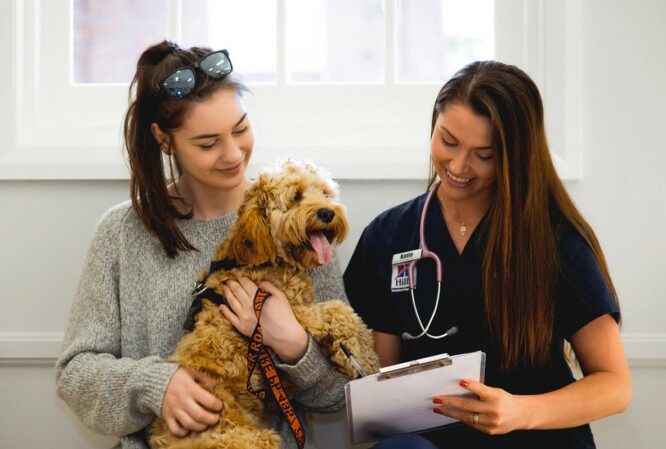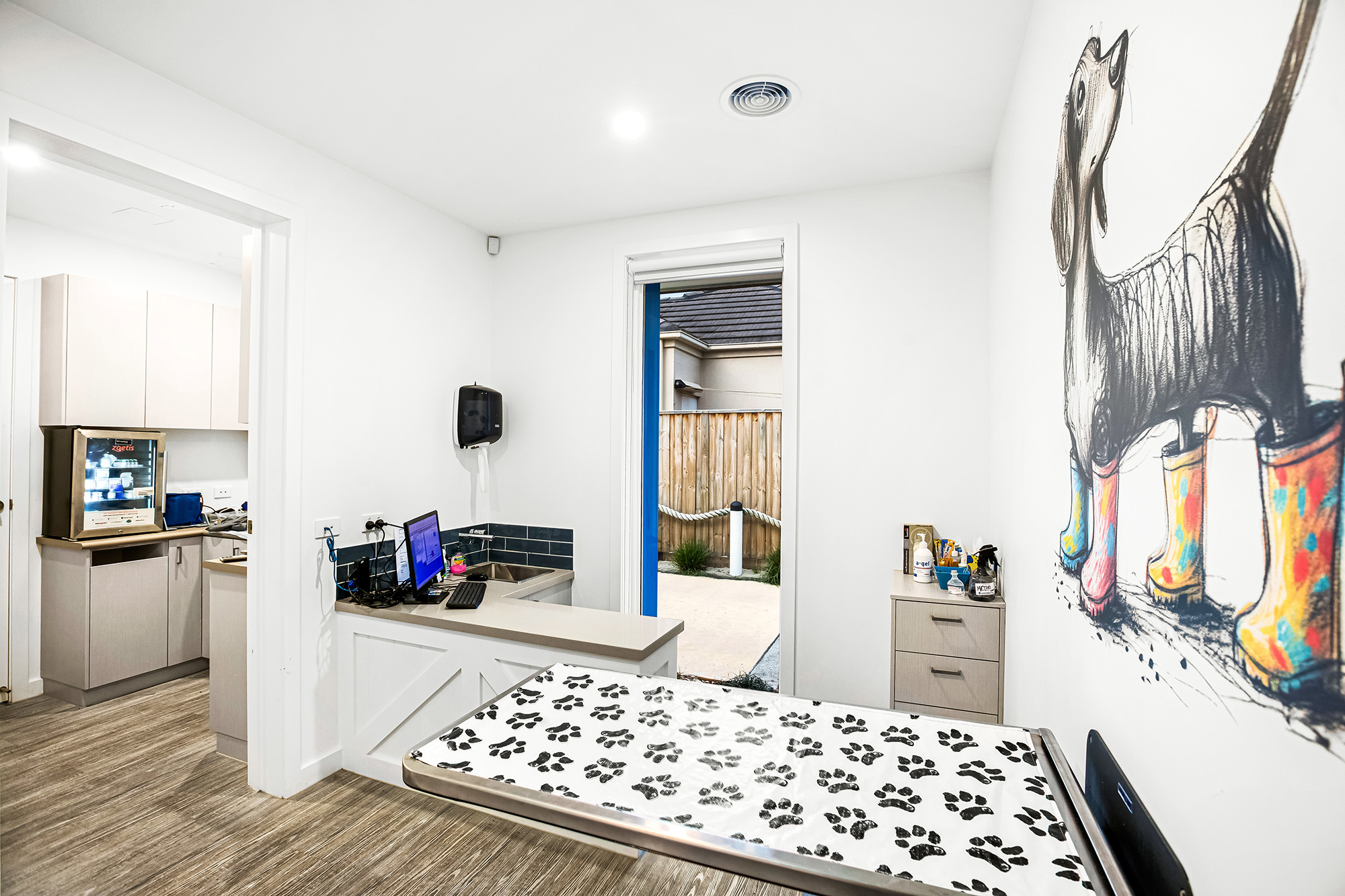Consultation
A veterinary consultation for a pet involves a thorough examination and discussion with a veterinarian to assess the pet’s health and address any concerns.
Here’s an overview of what typically happens during a consultation:

1. History taking
- Owner’s concerns: The vet will ask you about any specific issues or symptoms your pet has been experiencing (e.g., changes in behavior, eating habits, mobility, etc.).
- Background information: This includes questions about your pet’s diet, exercise, past medical history, vaccinations, medications, and any recent changes in their environment.
2. Physical examination
The vet will perform a comprehensive physical exam. This often includes:
- Weight check: Monitoring weight is important for detecting changes in health.
- Vital signs: Heart rate, respiratory rate, and temperature are measured.
- Mouth and teeth: Examining teeth and gums for signs of dental disease.
- Ears and eyes: Checking for infections, discharge, or abnormalities.
- Skin and coat: Looking for lumps, bumps, hair loss, parasites, or skin irritation.
- Palpation: Feeling the abdomen to check for any abnormal lumps or discomfort.
- Musculoskeletal system: Examining movement and joint health.

3. Diagnostics
If necessary, the vet may recommend further diagnostic tests based on the physical exam, such as:
- Blood tests: To check for infections, organ function, or other internal issues.
- X-rays/Ultrasound: If there are concerns about bones, organs, or internal structures.
- Urine or Fecal Tests: To detect infections, parasites, or other abnormalities.
4. Discussion & Recommendations
After the examination, the vet will discuss the findings and recommend a treatment plan or preventative measures. This could include advice on diet, exercise, medication, vaccinations, or behavioral training. If any health issues are detected, the vet may propose specific treatments, surgeries, or follow-up visits.
5. Questions
You can ask any questions regarding your pet’s health, behavior, or care during the consultation.
6. Cost
Treatment costs will be discussed with you in person by the attending veterinarian; allowing you to make an informed decision. We aim to represent value for money.
